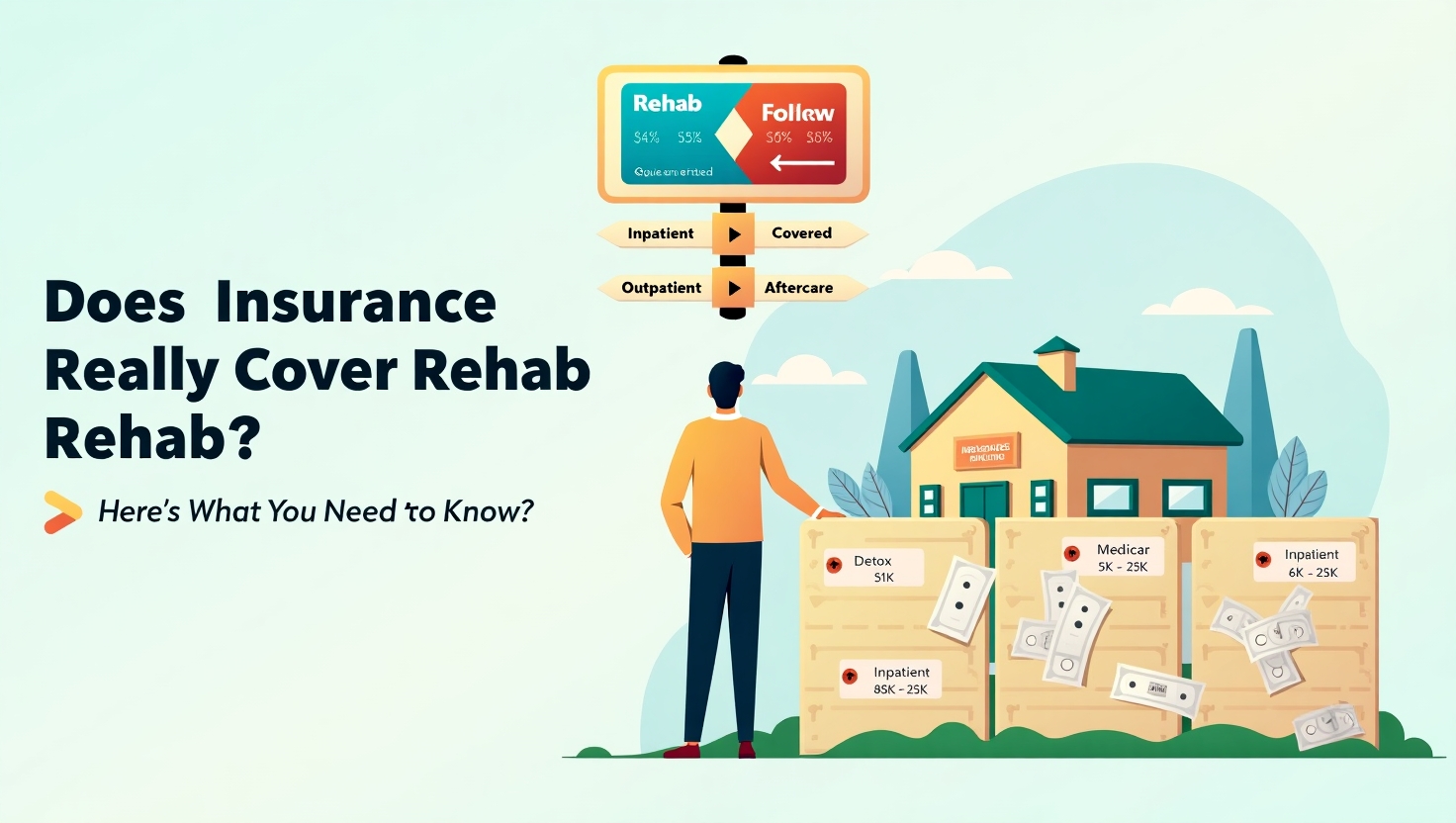It’s a fair concern. Rehab can be expensive, and the last thing you want while seeking help is to be hit with unexpected costs. The truth is—yes, insurance can cover rehab. But like most things in healthcare, the answer depends on several factors, including your policy, provider, the type of treatment, and even the state you live in.
In this article, we’ll break down exactly what insurance covers when it comes to drug or alcohol rehab, explain how to check your coverage, and help you avoid hidden surprises. Whether you’re looking into inpatient treatment, outpatient programs, or detox services, this guide is here to help you navigate the process—with honesty and hope.
Why Insurance Coverage Matters in Addiction Recovery
Let’s be real—rehab isn’t cheap. Depending on the level of care, location, and amenities, inpatient rehab can cost anywhere from $10,000 to $60,000 per month. Outpatient care is less expensive but still a financial burden for many.
That’s where health insurance becomes a game-changer. Thanks to federal laws like the Affordable Care Act (ACA) and the Mental Health Parity and Addiction Equity Act, substance abuse treatment is now recognized as an essential health benefit. This means most insurance plans are required to cover at least part of the cost of rehab.
What Types of Rehab Does Insurance Cover?
Insurance may cover different levels of treatment, depending on your plan and medical necessity. Here’s a quick breakdown:
✅ Inpatient Rehab (Residential Treatment)
24/7 care in a structured environment
Typically covered for a limited number of days
Prior authorization may be required
✅ Outpatient Rehab
Less intensive; ideal for those with stable home environments
Often covered more extensively than inpatient programs
Includes individual therapy, group counseling, and medication management
✅ Detox Programs
Medically supervised withdrawal
Coverage varies widely but often includes short-term detox
Some policies may require pre-approval
✅ Medication-Assisted Treatment (MAT)
Use of FDA-approved meds like Suboxone or Methadone
Typically covered under most plans with mental health/addiction benefits
✅ Mental Health Therapy
Essential part of addiction recovery
Usually covered under behavioral health services
What Types of Insurance Cover Rehab?
Here’s a breakdown of the most common types of insurance and their coverage details:
Private Insurance (PPO, HMO Plans)
Most employer-provided or privately purchased insurance covers rehab to some extent.
PPOs (Preferred Provider Organizations): More flexibility, broader provider network
HMOs (Health Maintenance Organizations): May require referrals or in-network treatment only
Examples: Aetna, Cigna, UnitedHealthcare, Blue Cross Blue Shield
Medicaid and Medicare
Government-funded options for low-income or elderly individuals.
Medicaid: Varies by state; many states now offer full or partial rehab coverage
Medicare: Covers outpatient and limited inpatient services for addiction under Part A and B
Military Insurance (TRICARE, VA Benefits)
TRICARE and the VA offer substance use disorder treatment, but options depend on service branch and location
How to Check If Your Insurance Covers Rehab
This part can be confusing, but here’s how to simplify it:
Call the Number on the Back of Your Insurance Card
Ask for the “behavioral health” or “substance abuse” department
Be specific: “Does my plan cover inpatient or outpatient drug and alcohol treatment?”
Ask About:
In-network vs. out-of-network facilities
Co-pays, deductibles, and out-of-pocket limits
Pre-authorization requirements
Limits on length of stay
Work with a Rehab Facility’s Admissions Team
Many treatment centers will verify your insurance for free. They’ll contact your insurer and let you know exactly what’s covered before you commit.
✅ Pro Tip: Use the phrase “insurance verification for rehab” when searching online. It’s a high-intent keyword that gets real results.
What if Insurance Only Covers Part of Rehab?
Unfortunately, even with good insurance, you may still face some out-of-pocket costs. This could include:
Deductibles (you pay before insurance kicks in)
Co-insurance (a percentage of the treatment cost)
Facility fees if out-of-network
Medications and follow-up care
But don’t let that stop you from getting help. Many rehab centers offer payment plans, scholarships, or sliding-scale fees based on your income.
Human tip: You’re not alone if you’re feeling overwhelmed by cost. Just take the first step—call your provider or a treatment center. People are ready to help you figure it out.
What If I Don’t Have Insurance?
If you’re uninsured, there are still options:
State-funded rehab centers
Non-profit addiction programs
Local health departments
Faith-based recovery groups
Some organizations also offer grants or charitable funding for treatment. Don’t assume you’re out of options just because you don’t have a policy.
Real Talk: Why Some People Still Avoid Getting Help
Even with coverage, many people hesitate to seek treatment because they’re afraid of:
Being judged by family or employers
Losing their job
Getting denied coverage mid-treatment
Dealing with bureaucracy
These fears are valid—but doing nothing is far more dangerous. Addiction doesn’t wait. Recovery is possible, and insurance is there to support it.
Final Thoughts: Yes, Insurance Can Cover Rehab—But Do Your Homework
So, does insurance cover rehab?
In most cases, yes—but you need to know how to navigate it.
Every policy is different, and what’s covered for one person might not be for another. But thanks to major healthcare reforms, addiction treatment is more accessible than ever.
Whether you’re just exploring the idea or ready to check into a facility, start by verifying your coverage and talking to a reputable treatment center.
You’ve already taken the hardest step by asking the question.
Now take the next one—and get the help you deserve.


